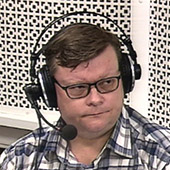Daimler promises to clean diesel of heavy trucks in 2039
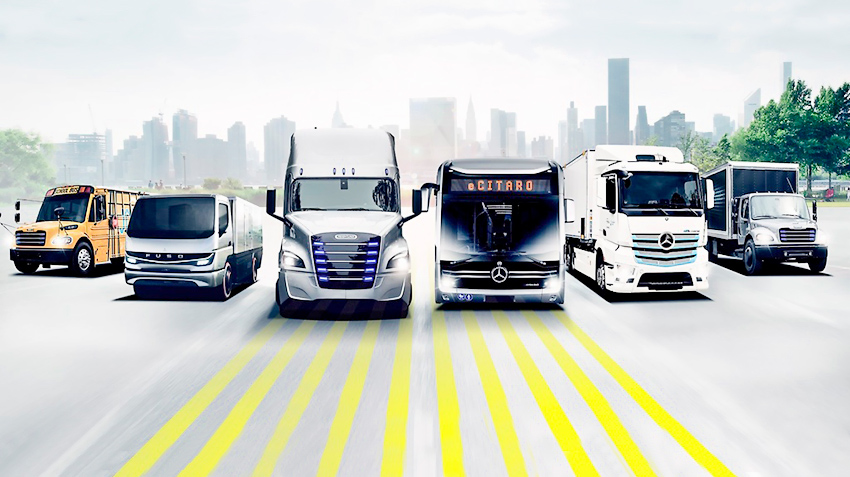
08.11.2019
In 2039 Daimler Truck & Bus promised to come to the "CO2 neutrality" in all markets of commercial vehicles

Recently, the leadership of Daimler AG made a loud statement about curtailing the use of diesel engines in vehicles with large carrying capacity in 2039 and enter "CO2 neutrality" (i.e. decarbonization – ed.) for new commercial vehicles in Europe, Japan and North America (NAFTA area).
Member of the Board Daimler AG, responsible for production of trucks and buses Martin Daum said: "At Daimler Trucks & Buses, we are clearly committed to the Paris agreement for the protection of the climate and, thus, the decarbonization of our industry. Our ultimate goal is to ensure that by 2050 the exploitation of strict neutrality in relation to emissions of CO2 transport. However, this can be achieved only if our customers will create competitive conditions for such transport from the point of view of costs and availability of infrastructure. Truly CO2 – neutral transport can only be electrically powered from batteries or hydrogen fuel cells". Daum added that: "Trucks and buses with a neutral emission of CO2 will not be sold by themselves even in 2040, as total costs for the purchase and operation of a cargo of electric vehicles and electric buses are still higher than that of diesel vehicles". He also claims that government incentives are needed to expand the market for such vehicles. Therefore, Daum believes that a European system of fare based on the emissions of CO2, "especially necessary" as the targeted subsidy program for electric buses and a nationwide infrastructure of charging and hydrogen infrastructure, as well as uniform standards for transporting and fueling with hydrogen, to create an advantage for vehicles with neutral carbon emissions.
Still struggling with global consequences for the company "of desligada" the new CEO of Daimler AG Ula of Callenius in the beginning of this year promised to make the whole Park of passenger Cars carbon neutral by 2039.
At its European plants, the company plans to make production "CO2 neutral" by switching to exclusively using renewable energy sources (RES) by 2022. In addition, by 2022 its product line in the major regions also will include electric vehicles in serial production. So, Daimler Trucks has been a pioneer in the field of electric trucks and Daimler Buses launched in 2018 serial production of city buses eCitaro.
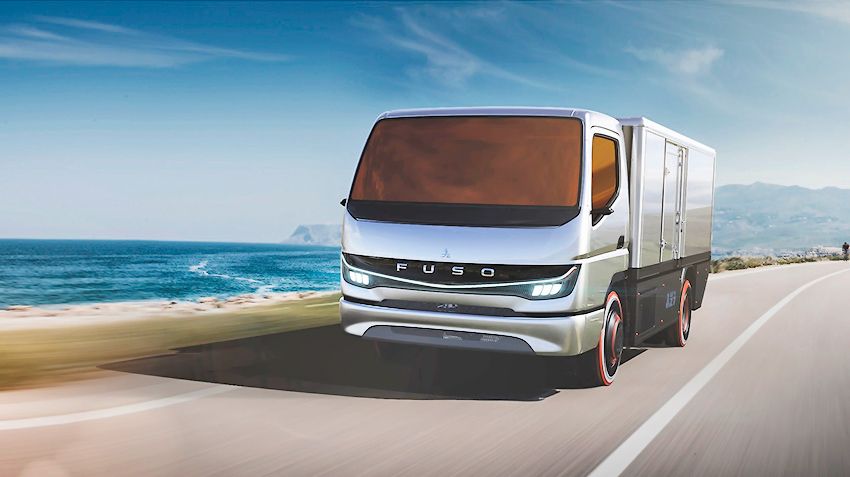
Vision Fuso F-Cell
At the last motor show in Tokyo was shown a prototype of the Vision truck F-Cell on hydrogen fuel cell presented by company Mitsubishi Fuso. By the end of the next decade, Daimler Truck & Bus will expand its product line of serial vehicles with hydrogen fuel systems.By the way, according to a recent study conducted by the NGO InfluenceMap, that Daimler was one of the most influential lobbyists in the world against the policy of climate protection, and for many years pursued a "strategy to control and delay the regulatory program with respect to emissions of conventional vehicles and the introduction of electric vehicles".
global electrification of trucks
Experience with electric trucks Daimler Trucks acquires from 2010, and 2017 customers have been able to exploit the first production all-electric light-duty truck – Fuso eCanter.
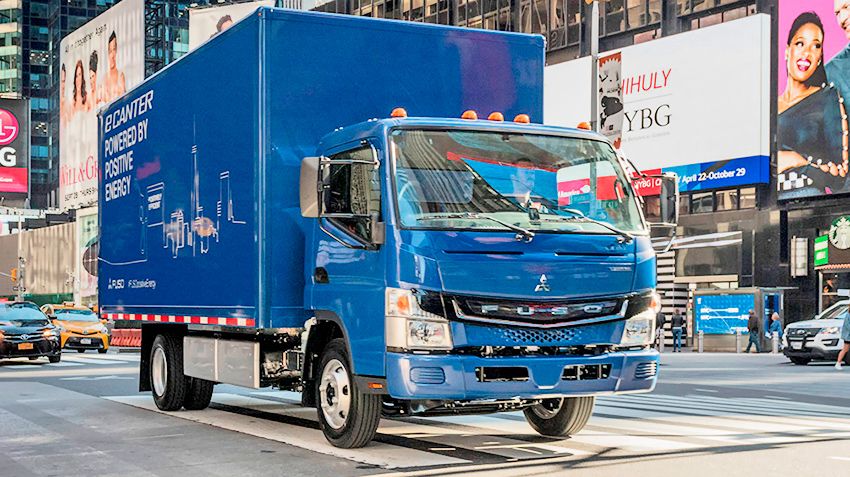
Fuso eCanter
More than 140 units eCanter s already serve clients in cities worldwide, including new York, Tokyo, Berlin, London, Amsterdam, Paris and Lisbon. Heavy-duty electric truck Mercedes-Benz eActros with a range of up to 200 km is intensively used by customers in Germany and Switzerland as part of the "innovation Park".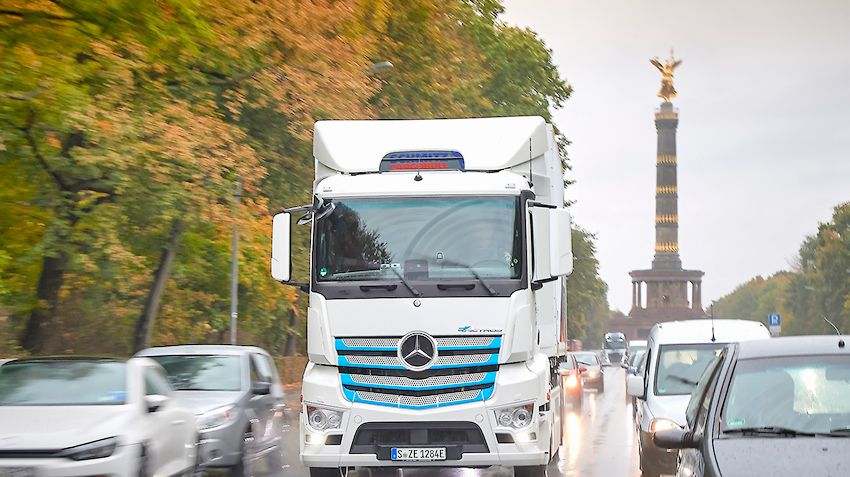
Mercedes-Benz eActros 2018
The first delivery to the consumer eActros was produced in 2018.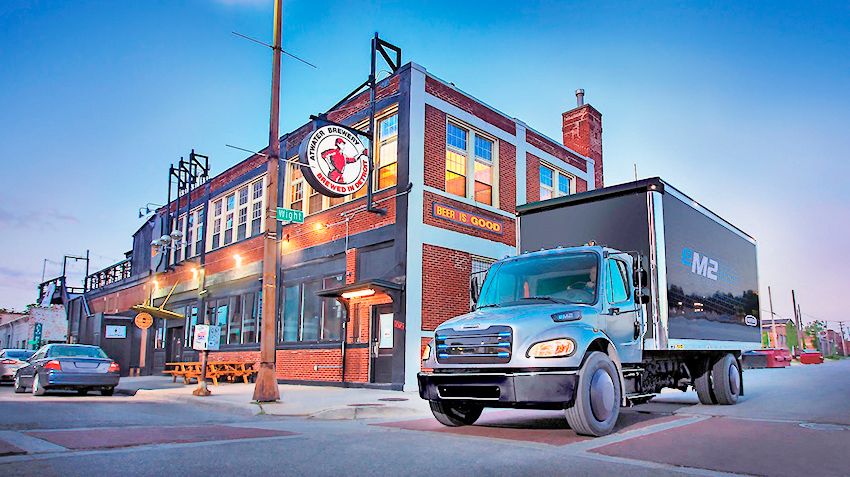
Freightliner eM2
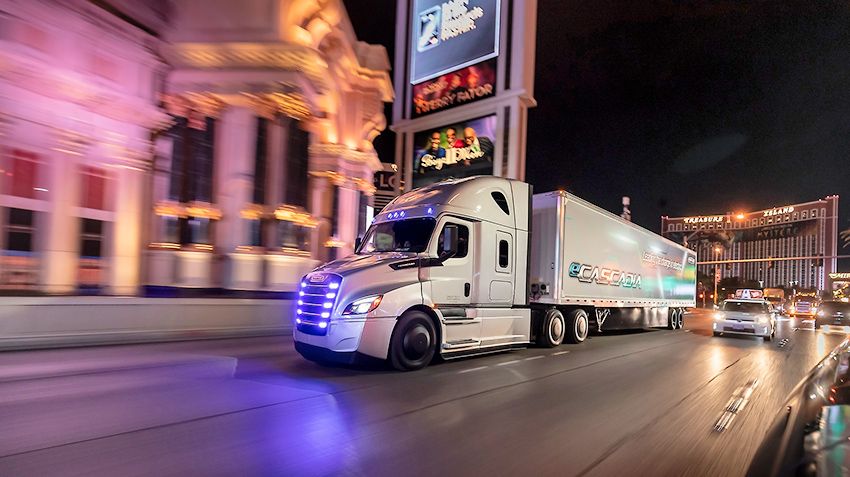
Truck tractor Freightliner eCascadia
In the US srednetonnazhnye Freightliner eM2 and the truck tractor Freightliner eCascadia for heavy duty also undergo rigorous road tests.Practical hydrogen-storage system for electric buses
Battery electric bus Mercedes-Benz eCitaro already serially produced at the plant in Mannheim in 2018 and proposed urban and municipal transport companies, allowing to take its fleet vehicle emissions.
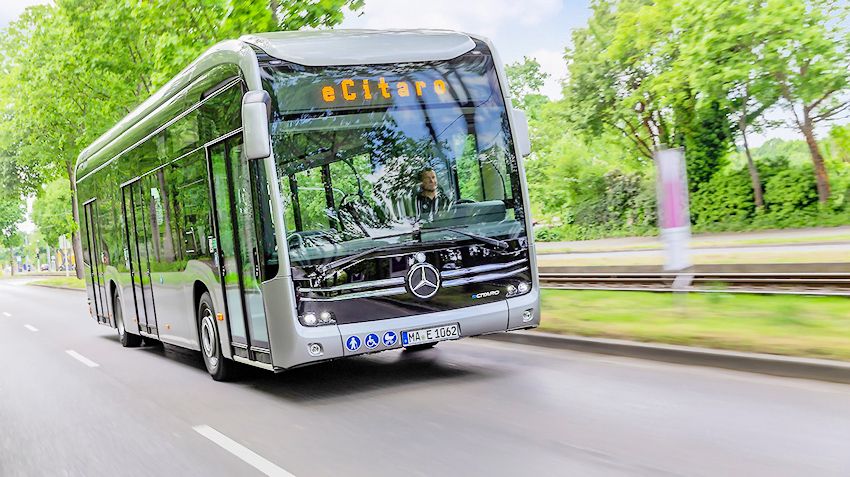
Mercedes-Benz eCitaro 2018
Today eCitaro already working in cities such as Berlin, Hamburg, Oslo and Ystad (Sweden). The buses eCitaro was also set up in Luxembourg and Switzerland. Design eCitaro is constantly being improved, so the Busworld motor show in Brussels was shown articulated buses eCitaro G.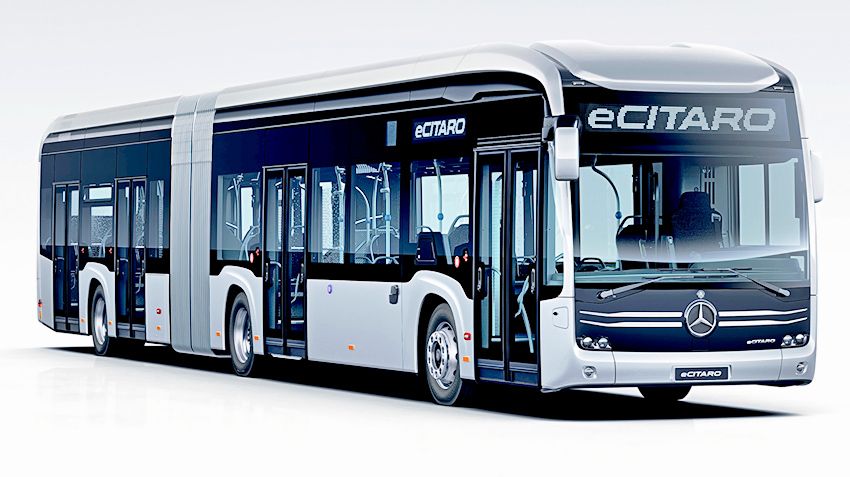
Mercedes-Benz G eCitaro 2020
In the second half of 2020 eCitaro get solid state lithium polymer batteries and 2021 will appear on the market with the battery of the next generation. Starting in 2022, the battery pack will be fitted with an "expander" reserve, which is a hydrogen fuel cell that will provide the charging high-voltage battery. Future battery technology will increase the coverage of regular route buses, and fuel cell as the extensions of the reserve, they will be able to serve routes of almost any length. Since the electrification of bus fleets have major changes for providers of public transport, Buses Daimler teams up with his customers to ensure the operation of the entire system of electromobility through a comprehensive management. American brand buses Thomas Built Buses also let the serial electric school bus for the U.S. market.Hydrogen fuel cells
Daimler is working on transport technologies based on hydrogen for over 30 years. To date, company vehicles with hydrogen fuel cells have undergone many millions of kilometres, demonstrating the competitiveness of this drive concept. However, in the sector of commercial vehicles, there are very specific problems such as the lifespan and value of the payload. Battery and hydrogen technologies offer different advantages depending on the requirements and, therefore, complement each other. All the same, the decisive criterion for the customers of trucks and buses entering the total cost of ownership.
Vision Fuso F-Cell – the prototype of a fuel cell
A division of Daimler Trucks & Buses reinforces its activities in the field of hydrogen energy with the creation of a prototype Vision F-Cell. Brand Fuso uses this prototype to test the capabilities of fuel cell technology for various commercial vehicles. So the truck gross weight of 7.5 tons, equipped with a motor peak power of 135 kW. Power reserve is up to 300 kilometers. The architecture of Vision electric F-Cell is basically comparable with the architecture of a cargo of electric cars with battery-powered, with the exception of a significant reduction in the size and capacity of the battery and additional hydrogen.
Sustainable corporate strategy Daimler Truck & Bus
The inventors of the automobile Gottlieb Daimler and Karl Benz laid the Foundation of the modern automobile and the trucking industry more than 120 years ago. In recent decades, units of trucks and buses Daimler-Benz has actually set standards for the entire industry of commercial vehicles both from the point of view of safety and fuel efficiency, and the comfort of the driver and passengers. Now Daimler Truck & Bus believes that it is time for another evolutionary step: the introduction of carbon-free, automated driving and platooning. The company today is working to incorporate these revolutionary technologies into production under its brands, divisions and regions and thus to bring "CO₂ neutrality" transport and accident-free driving, contributing to the sustainability of global freight and passenger traffic.
PS Indeed, bees against honey! The cargo division of Daimler – vs. diesel! "Seen to be God" – as sung in the song of Vladimir Vysotsky. It's a joke, of course, but as a serious show such analytical organizations as Bloomberg – in 2039, well, if only cars will be transferred to electric traction at least half, but cargo – so percent on 5-10. So whether prominent manufacturer of trucks and buses in Europe and in the world as well as the founder of the use of the internal combustion engine and its most serious variations with compression-ignition (diesel bus) so sharply and rigidly shift the wheel in the direction of a far from perfect technology of electric drive – don't know. Not to cherpnut would water through the ports (loopholes), and that you can drown. By the way, from here and followed quite a non-market passages of the head of the "Daimler" about government regulation strangling with fines and taxes is quite another (more than 20 years by his own admission) diesel technology. In fact, it's still Henry Ford a century ago, spoke and wrote: we must not stifle free competition and to implement breakthrough technologies that really will need to consumers and not to sell them expensive and costly decision, causing utter to overpay.
P. P. S. If the head of one of the pillars of the capitalist market economy called for state regulation with draconian taxes it is still a competitive technology, that is left to do to consumers? I think that the result of such "implementation top" to be delays in all ways conventional cars with internal combustion engines, because if the demand for gasoline and diesel will still decline, then oil will be cheaper, but it will be an additional factor in braking of introduction of alternative vehicles. One could argue that Western countries with their powerful fiscal control apparatus and tighten with the change of the internal combustion engine, the motor will fail (won in Paris was denied entry of old cars in the center – and no "pardon"), but without social tensions violation of economic common sense will not do..
|
|
|


